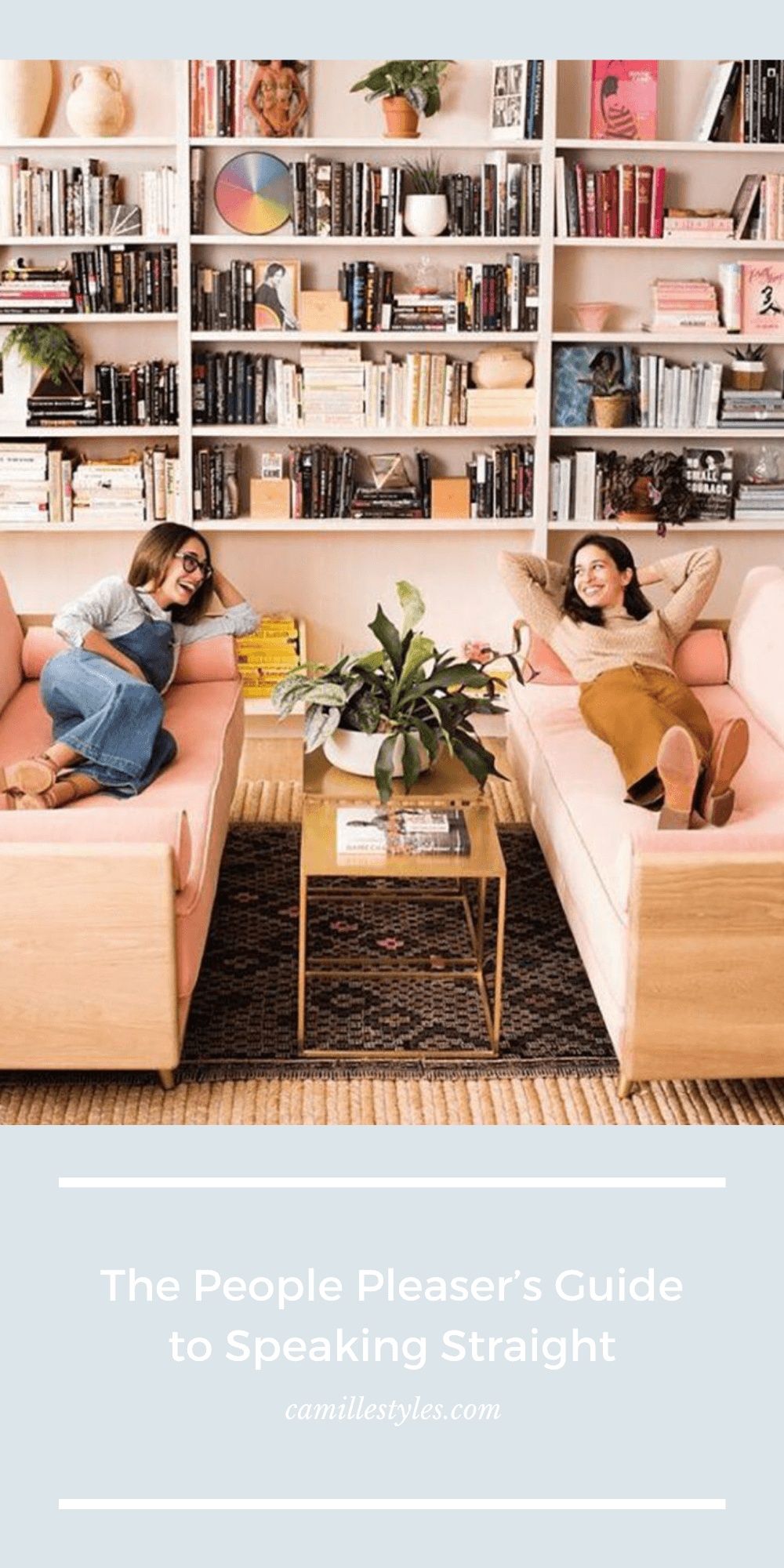I’ve felt the overwhelming need to please others for as long as I can remember.
It’s often been challenging for me to speak directly and share what’s really on my mind with people I care about, when the idea of potentially making them feel uncomfortable has all too often kept me from saying exactly what I’m feeling.
That said, I definitely believe in the power of speaking straight with the people in our lives in order to avoid miscommunication and hurt feelings. There have been too many times when I’ve allowed resentment and frustration to build up until they bubble over in an emotional outburst.
Well, for better or worse, the challenging circumstances we currently find ourselves in have forced me to get brutally honest, whether that’s in relation to social distancing and safety, or establishing boundaries when it comes to what I’m able to give in my relationships.
I’ve had more uncomfortable conversations in the last five months than I probably have in my entire life, and while it has certainly sparked anxiety, these conversations have also been healing, liberating, and absolutely essential to supporting my mental health.
Since I know I’m not the only people pleaser out there trying to navigate these choppy waters, I sat down with licensed marriage and family therapist, Danielle Locklear, who so generously answered my questions on how to speak straight about tough topics in this tricky time. Scroll on to read the full interview.

Establishing and maintaining boundaries in this uncertain time can feel uneasy, especially if you’re a people pleaser. Why is it important to speak straight now more than ever?
It’s been interesting to see how the pandemic has begun to normalize conversations around boundaries and informed consent. When your health is at stake, you’re more likely to be clear about your expectations and ask for what you need. For instance, “I’d love to see you, but I’m not comfortable with indoor or mask-less events. Will a park picnic on separate blankets work for you?” This also applies to overall emotional and mental wellbeing. Most of us don’t have the mental and emotional capacity we did before the pandemic began, so establishing boundaries around our availability and communication is very helpful in avoiding burnout (ex: “I’d love to hear about your date, but I have an early day tomorrow, so I can chat until 10:00” or “I don’t have the bandwidth to discuss politics today, but I’d still love to catch up.”)
Are there any resources, language, or exercises you would suggest when it comes to putting your people pleasing tendencies aside and getting honest and direct?
For those of us with strong “people pleaser” tendencies, establishing a clear boundary can feel cruel or selfish. When in actuality, it sets a shared expectation and allows you to be more authentic and present in your relationships. A pattern of overextending yourself in a relationship can lead to resentment and ultimate withdrawal from relational connections. One exercise that can help is verbalizing your boundaries aloud to yourself… and noticing what emotions or thoughts arise. Use your breath to ground you, and say it again. After several times, you will likely notice that you become more comfortable with it. We have to allow ourselves permission for boundaries internally before we can establish and maintain them with others. A great resource for more reflection and language regarding boundary setting is @the.holistic.psychologist.

Generally, is there any way to gauge how people around you will react?
The good news about boundaries is that it’s your responsibility to set and maintain them. A person’s reaction to your boundary is actually their responsibility. We can’t control the story someone may tell about a situation, and thus the emotional response they have to it. If we are energetically comfortable with a boundary, and communicate it clearly, others are much more likely to receive it. Setting boundaries in a neutral moment is also helpful, because we are able to reflect on and integrate information much better when we aren’t emotionally charged. Plus, you can kindly remind someone of that boundary moving forward if needed.
If people react poorly, what does that say about your relationship?
Boundaries can often disappoint others, but more good news, it’s perfectly okay to feel disappointed in life from time to time! If you have a relationship where you’ve overextended yourself often, it’s reasonable to expect the person who’s benefited from that to need some time to adjust to a new pattern. I believe we have a responsibility to teach those we care about how we receive love and care and it’s their responsibility to be willing to learn. An initial poor or strong reaction to a boundary may not be a dealbreaker. If it’s a meaningful relationship, perhaps allow some time for them to adjust, but it’s crucial that you maintain your boundary consistently, and verbally remind someone if they cross it. Something as simple as “If you continue to raise your voice, I’ll have to end this conversation and we can try again later.” Be on the lookout for those who try to use guilt or shame to side step your boundary… that’s a form of manipulation and can be catnip for those people pleasing parts that already hold resistance to boundaries.

Sometimes it can feel like all or nothing for people pleasers – you either throw yourself into relationships or cut them off completely. What’s the best way to show people you care about them while still respecting yourself and your boundaries?
Boundaries are a living document – that is to say, they evolve as individuals and relationships evolve. So normalize the process of checking in or revising relational boundaries as needed. The emotional cut-off can often be a knee jerk reaction to feeling overextended in a relationship. **Note: mindfully choosing to end a toxic relationship is not the same as an emotional cut off.
Any other advice for this journey?
Self-Compassion is such a beautiful companion to boundary setting. Practicing new patterns of being in a relationship can feel downright terrifying for parts of us used to people pleasing or putting others’ needs before our own. Self-compassion fosters patience for the journey, while honoring the difficulty and discomfort we often feel in the beginning. What would it look like to say to yourself, “This is a tough moment. I know I’m not the only one who struggles with this. What can I do to be kind to myself in this moment?”
A big thank you to Danielle Locklear again! Make sure to visit her site & follow along with her on Instagram.
Liked this story? Pin this to come back to it later.





